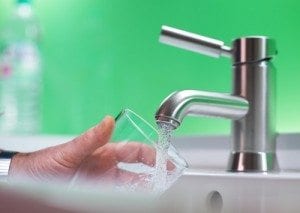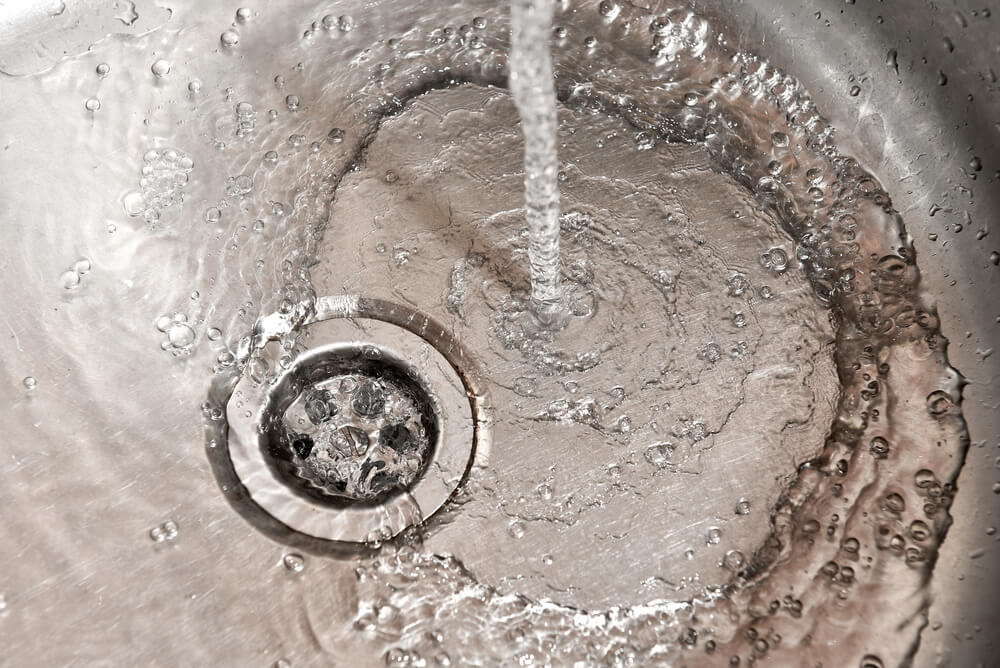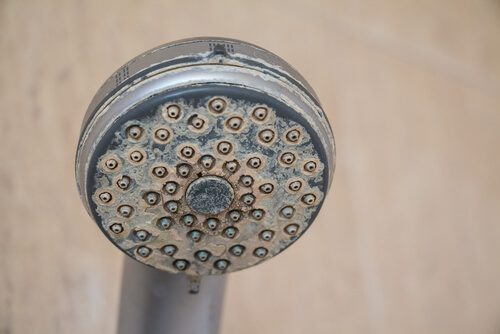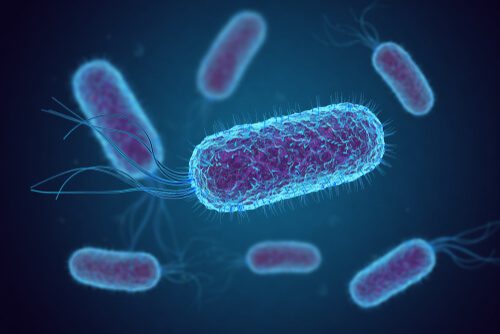7 Water Issues That Could Plague Your Cincinnati Home & How to Manage Them

The water flowing out of your plumbing fixtures should be clear and free of contaminants, and it should have a neutral taste and smell. If the water coming into your home isn’t clear, or if it has a funky taste or odor, you probably have water issues.
First, let’s discuss the quality of Cincinnati water, where it comes from, and if it is safe to drink. Then, we’ll talk about potential water problems you may have within your home.

Where Does Cincinnati Get Its Water?
Cincinnati’s water comes from two main sources: the Ohio River and the Greater Miami Buried Valley Aquifer (GMBVA). Surface water from the Ohio River is treated and provides about 88 percent of the drinking water to Greater Cincinnati’s Water Works customers.
Is Cincinnati Tap Water Safe to Drink?
Can you drink the Cincinnati tap water? In short, yes, the water in Cincinnati is safe to drink. Greater Cincinnati Water Works meets or exceeds all state and federal health standards for drinking water. The water is tested daily, and the Ohio EPA tests the water on a monthly basis.
The water must go through significant filtration and purification to meet these standards. Both the Ohio River and the GMBVA aquifer have been classified as “highly susceptible to potential contamination” by the Ohio EPA.
Potential Cincinnati water contaminants that may be present include microbial contamination (viruses or bacteria), inorganic contamination (salts, metals, industrial discharges), pesticides and herbicides, organic chemical contaminants, and radioactive contaminants (either natural or the result of gas or mining operations). These are all filtered out by GCWW to reach acceptable federal and state standards.
Just because the water is filtered and treated at GCWW doesn’t mean that the water makes it all the way to your faucet pure and clean. There are a number of potential problems with tap water that homeowners may run into before it reaches your faucet.
Does Cincinnati Have Hard Tap Water?
GCWW reports Cincinnati’s tap water has hardness levels of 115 to 135 mg per liter of water in 2022, depending on the source and the water processing plant.
To put this in perspective, here is the general water hardness classification:
- 0 to 60 mg/L is soft
- 61 to 120 mg/L is moderately hard
- 121 to 180 mg/L is hard
- More than 180 mg/L is very hard
So yes, Cincinnati has hard water.
7 Common Home Water Issues & How to Manage Them
Now that you understand where the water in your area comes from and how hard it can be, you can be on the lookout for any potential issues.
Here are a few residential Cincinnati water problems you should watch for:
1. Hard Water

Hard water comes from high levels of calcium and magnesium. It shows up as lime scale on the plumbing–which looks like a grayish-white film in sinks, tubs, dishes, and around faucets. While hard water is perfectly safe to drink, it can contribute to wear and tear on your home’s plumbing system and appliances.
It creates mineral deposits around your faucets and builds up soap scum on your tiles and countertops. Additionally, hard water can create a mineral deposit on the bottom of your water heater, reducing its efficiency.
Hard water is what creates that spotty look on your glassware and why your dishwasher needs the special dishwasher rinse solution to keep dishes looking nice. The rinse neutralizes the hard water for the last cycle, so the dishes look nice after washing.
Hard water creates a lot of extra cleaning, wears clothes out faster in the washer, and reduces the lifespan of your plumbing system and any appliances that use water.
To combat hard water, you need to install a water-softening appliance filled with a sodium solution that neutralizes the calcium and magnesium.
2. Iron & Manganese
If your water is initially clear but creates brown, orange, or reddish stains or sediment, or if your water tastes metallic, then you likely have iron in your water. If your water has black specks or stains, any standing water looks gray or black, or it tastes metallic, it could contain high levels of manganese.
Iron and manganese occur naturally in some groundwater, and they can create a rusty appearance in water or leave rusty stains behind. These are especially likely if you get your water from a well.
A water softener fitted with an iron remover can decrease the presence of both iron and manganese.
3. Hydrogen Sulfide
Hydrogen sulfide will give water the smell of rotten eggs or sulfur. If only your hot water smells like rotten eggs, then it could be a chemical reaction with your anti-corrosion magnesium rode (the anode rode) in your water heater. Or it could be sulfur bacteria living in your water heater and converting sulfate to hydrogen sulfide gas. There are three options to deal with a water heater that smells like sulfur:
- Have a Plumber Remove or Replace the Magnesium Anode: Removing it completely can significantly reduce the lifespan of your water heater. Your plumber may consult with the water heater manufacturer to see if a different material for the anode, such as aluminum, could be a viable solution.
- Clean and Flush the Water Heater with a Chlorine Bleach Solution: Chlorination will kill off all the bacteria inside your water heater. If not done thoroughly, the bacteria will return within a few weeks.
- Increase the Water Heater Temperature to 160 Degrees Fahrenheit for Several Hours: Raising the temperature to 160 degrees will kill off all the bacteria. Lower the temperature and let the water cool before flushing the tank.
CAUTION: Increasing the temperature of your water heater can be dangerous. You need to be 100 percent certain your pressure relief valve is functional and can handle it.
If the sulfur smell is in all your water, it will have to be treated. To remove hydrogen sulfide, install a multi-stage system that chlorinates, filters sediment, aerates, and neutralizes the taste and smell.
4. Bad Taste & Odor
“Why does my water taste bad?” It’s a common question our plumbing team receives from customers. A bad taste or a smelly odor in the water can come from two sources: decaying organic matter or a leak from the sewer or septic system.
Activated carbon filters can manage the decaying organic matter. You need a plumber to verify that it is not a leak or backup from your sewage system.
5. Sediment
Sediment is usually fine particulates of scale, clay, sand, dirt, rust, or organic material floating in the water. A sediment filter can capture most particulates. For fine sand, you need an agraclear filter.
6. Bacterial Contamination
 Bacterial contamination isn’t common in drinking water, but if it’s present, you need to do two things. Install a disinfectant system like chlorination to kill off the bacteria, then find the source of the contamination and eliminate it.
Bacterial contamination isn’t common in drinking water, but if it’s present, you need to do two things. Install a disinfectant system like chlorination to kill off the bacteria, then find the source of the contamination and eliminate it.
Leaving your water untreated could lead to serious bacterial infections for anyone in your home who consumes or bathes in the contaminated water, so this is a matter that should be treated urgently.
7. Lead
Lead mainly occurs in older homes where lead solder was used to join copper pipes or homes with lead pipes. Other sources might be from brass fixtures, “packer” elements in private wells older than 20 years, or leaded brass parts in older submersible pumps in private wells.
Adding a filtration or reverse osmosis system will remove the lead from the water. Have a professional analyze the water and remove any lead solder or piping in your home.
If you’re having home water issues, contact the experts at Apollo Home Heating, Cooling, and Plumbing to schedule an appointment! We’ll test your water, determine the source of the contamination, and find a water treatment solution to ensure your water is safe!


